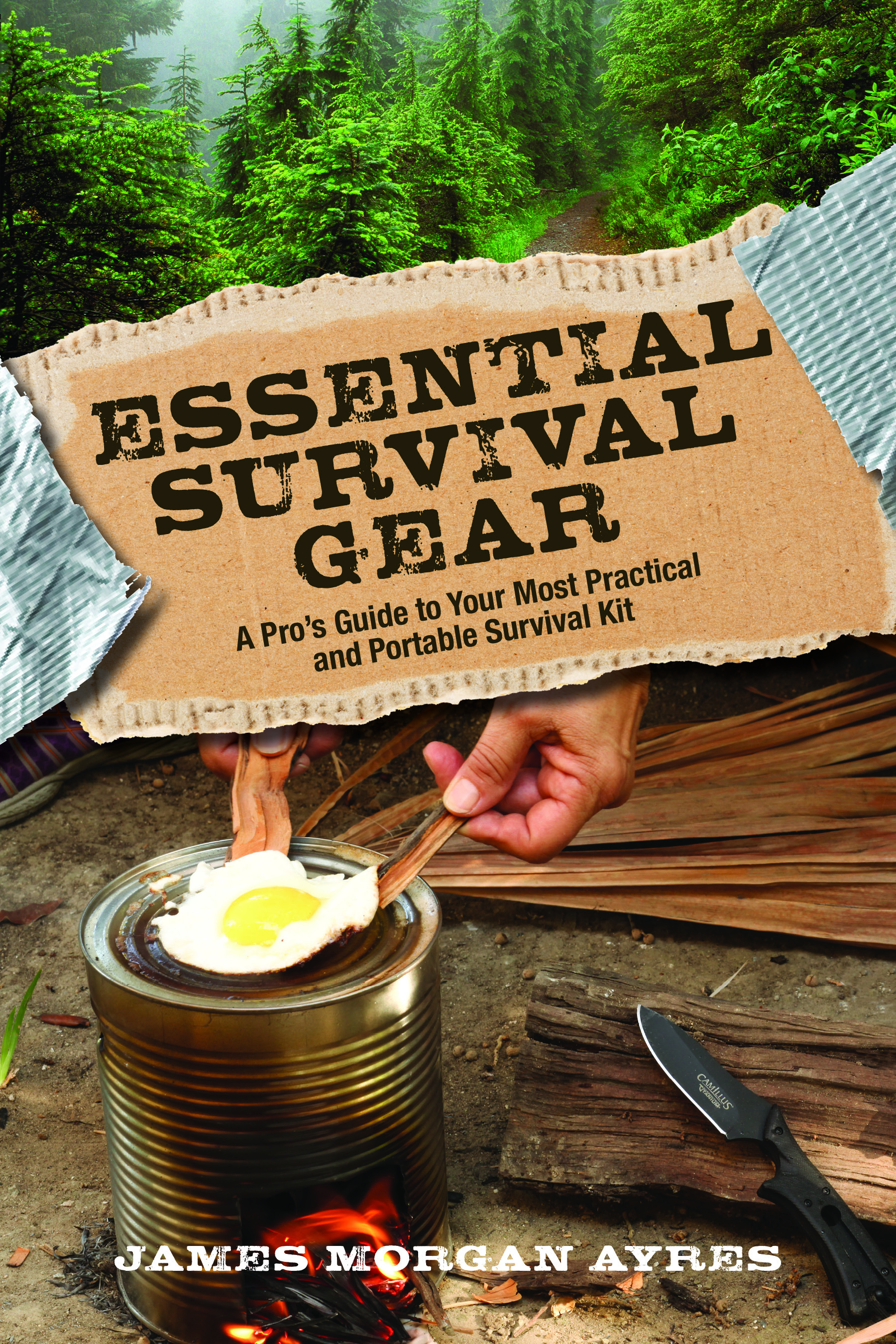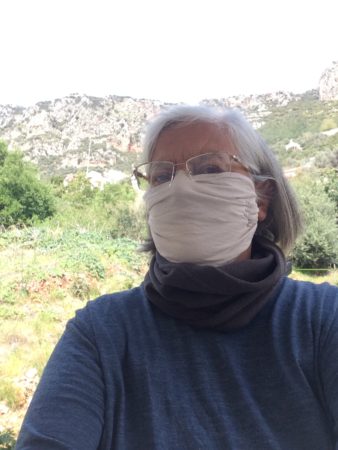Ibrahim chops wood with style and grace. Like a martial artist deep in practice or a dancer working his way through a choreographed routine, each movement is smooth and practiced. Ibrahim swings a straight handled ax with a long curved blade, like the war axes in ancient stone carvings. Ibrahim takes a sawn chunk of wood about a foot and a half long from a large jumbled pile, places it on the chopping block and swings his ax with economical accuracy. Every powerful stoke splits a short chunk of wood to fit into his soba – stove.
Ibrahim is tall, lean and strong. He has a fringe of white hair and the tanned face of a man who works outside part of each day. He chops for about an hour in the late morning whether it’s sunny or gray. On days when one of the sharp storms come in off the sea he waits for a lull in the rain and works until the winds come up again bending the branches of the olive tree next to the woodpile, and the rain returns driving in with stinging force.
Fetma, Ibrahim’s wife, keeps a garden on the terraced hill below our houses. Fetma grows arugula, pearl sized tomatoes, long green peppers, and fat red peppers, fragrant parsley and a dozen or so other luscious vegetables. Fetma does mysterious and magical things in her kitchen with her vegetables, the cheese from her goats, the olives from her tress that she cures herself, and the accumulated knowledge of generations. Fetma produces marvels of scrumptious (love that word, don’t you?) food that makes you want more.
Fetma is a pretty woman with bright amber eyes and a gentle smile. She has a mother’s hands and moves quickly and with such grace you don’t notice her till she’s standing next to you with a pot of tea to refill your glass. On days when we least expect it, she knocks on our door and brings us gifts from her garden and kitchen, gifts we can never hope to repay.
One day last week Fetma came when ML was away and brought two kinds of stuffed biscuits and wonderful cabbage rolls stuffed with… I don’t know what, an array of ingredients with subtle and pungent flavors. I wolfed them down, all but one. Conscience and prudence demanded that I save one for ML. Doing so was a monumental challenge, but I rose to the occasion, keeping in mind that ML is the keeper of our kitchen, from whence good things come.
Before retiring, Ibrahim and Fetma had careers as schoolteachers in another city. But their roots are here in this village on a hillside above the sea. Last Sunday they invited us to a late breakfast. We arrived at their town home, a penthouse with a view of Kas harbor and were greeted with great personal warmth. Their sons, Fethi and Hakam, were also there and helped with translation. Outside it was bright and brisk with a sharp wind off the mountains that run down to the sea enclosing the town and we were glad to come inside.
The menu included, barek, a layered dish with flat rolled dough, cheese, meat, parsley and mint, redolent with spices. There were black and green olives, two kinds of paprika sauce, tomatoes, oranges, cherries and cherry jam, goat cheese, light and delicately flavored, almonds, honey and fresh baked bread. Everything was from their own produce and kitchen. The food was wonderful and I ate too much. Although, I wonder, is it possible to overeat with such good and healthy food?
Our conversation ranged from local history and current matters to our respective families, all easy and relaxed, as if we were in the home of old friends rather than new ones. As we ate and watched the wind out of the window whip up white caps in the harbor, I watched Fetma move around, pouring tea, bringing new dishes to the table, her hands so quick and sure and her smile ever present and I imagined her in the classroom, teaching children to read and number with the same nurturing attention she devotes to her food, the food that raised two sons and now nourishes two strangers who she welcomed into her home.
I don’t know what Ibrahim’s teaching methods were. But my guess is he brought to his class the same precision of action and attention he brings to the chopping of wood. A man who takes care in small things, takes care in large things, knowing that in truth, there are no small things and that everything matters.
When breakfast was over and we said our goodbyes, ML and I stepped out into a cold piercing wind and I remembered Ibrahim’s neatly chopped wood burning in the soba upstairs and how it had warmed the room and all of us. I carefully tucked that memory away, saving it for the long road ahead, slung my rucksack over my shoulder and headed for the otogar where we would catch a dolmus to Antalya, then on to Istanbul and from there north to parts unknown.

 Sun, Apr 5, 2020: Killing Mr. Jones
Sun, Apr 5, 2020: Killing Mr. Jones Wed, Apr 1, 2020: On Hoarding
Wed, Apr 1, 2020: On Hoarding Mon, Mar 30, 2020: Masks Save Lives – Covid-19
Mon, Mar 30, 2020: Masks Save Lives – Covid-19 Sun, Mar 29, 2020: Visions of Apocalypse
Sun, Mar 29, 2020: Visions of Apocalypse Fri, Aug 23, 2019: Hijacked Twitter
Fri, Aug 23, 2019: Hijacked Twitter Sun, Aug 18, 2019: The Incident
Sun, Aug 18, 2019: The Incident Sat, Aug 10, 2019: Seas and Oceans Without End
Sat, Aug 10, 2019: Seas and Oceans Without End
A wonderful and descriptive moment captured by a wonderful and descriptive writer. Thanks for the trip. Ra Martin said it all. Thanks Ra.
Scott
Woodcutters, cabbage rolls & goats–warm hearted, amber eyed villagers,
home cured olives…almonds & honey. You are in a safe harbor,
the essence of making “home” wherever you find it. Your literary portraits are vivid and generous,
Thank you for the view in to a place and a life many of us will never experience. RA